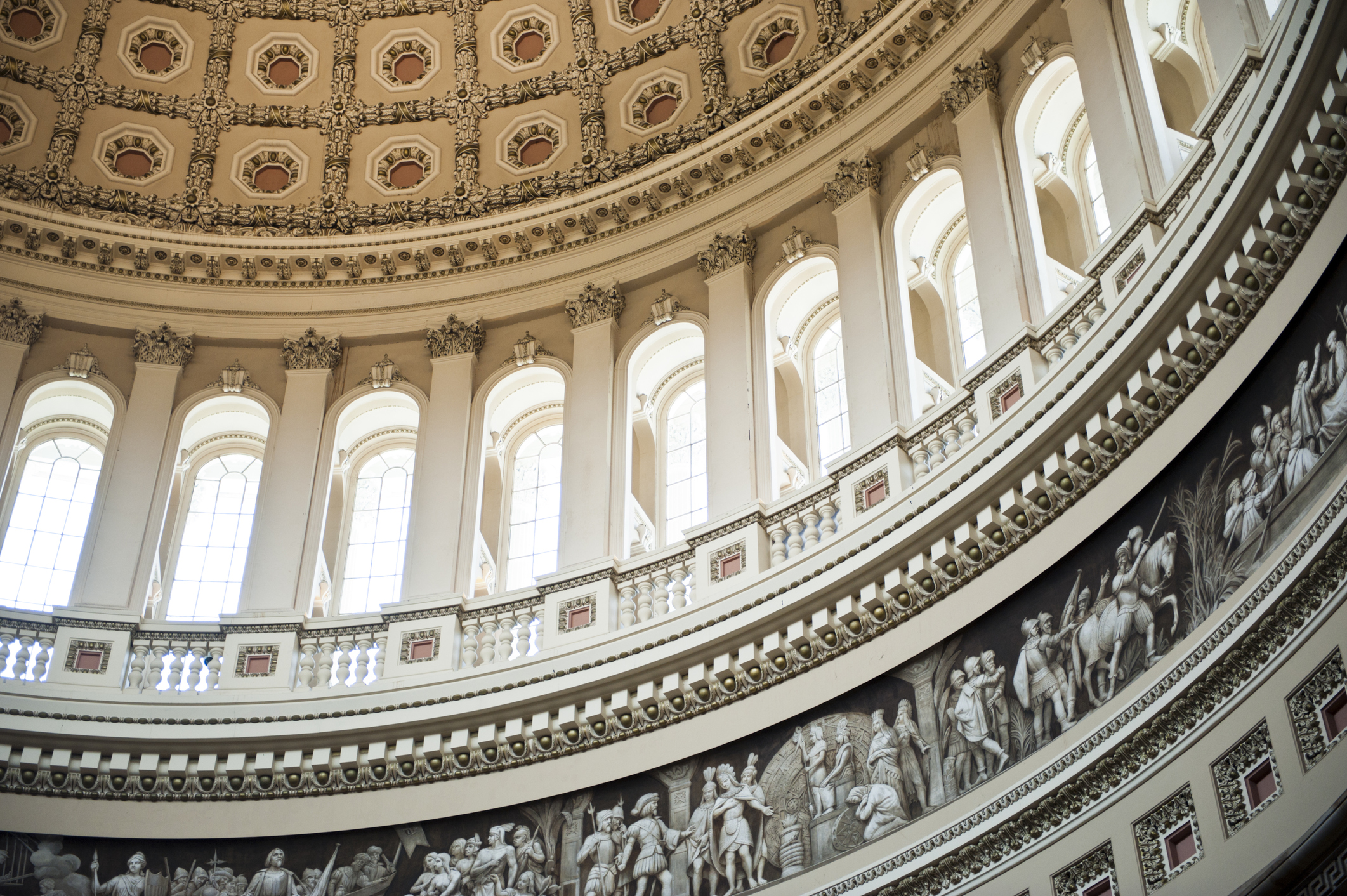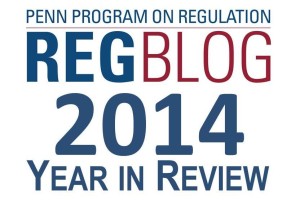
The Regulatory Review highlights the series published in 2017.
The Regulatory Review is pleased to highlight the series published by The Regulatory Review in 2017. The series are arranged below in chronological order. A series consists of several essays organized around a particular topic, such as a current debate over issues in regulatory policy or extended coverage of important development related to regulation.
The Department of Education’s Power to Cancel Student Debt
January 4, 2017
Something has to give on student loans. The $1.4 trillion in outstanding student loan debt has weakened the macroeconomy and has become a form of regressive taxation. Although there has been plenty of discussion surrounding these issues, with a specific focus on student loan interest rates and income-based repayment plans, little has been said about the U.S. Department of Education’s broad powers to outright cancel existing student loans. This series of four essays discusses the most important of those powers and why the Department’s authority has not been frequently discussed—much less invoked by the agency.
Regulating Police Use of Force
February 13, 2017
Over two years ago, in Ferguson, Missouri, an unarmed African-American teenager named Michael Brown was fatally shot by a white police officer. The incident unleashed a wave of protests and led to an investigation by the U.S. Department of Justice that detected patterns of excessive police force in Ferguson. The Regulatory Review presents a series of 15 essays by leading criminal justice scholars and activists, former law enforcement officers, and public officials analyzing the issues and offering possible solutions to excessive force by law enforcement officials.
Assessing the Regulatory Accountability Act
May 30, 2017
New bills recently introduced in Congress would work the most significant structural changes to the administrative state since the Administrative Procedure Act of 1946, which Congress has not significantly modified in decades. Amid intensifying debate over regulatory reform, The Regulatory Review presents a series of eight essays by leading administrative law and regulatory scholars offering varied views about the potential implications of the Regulatory Accountability Act.
CPSC Commissioners Debate Regulatory Reform
June 20, 2017
Over the past few decades, Presidents and Congress have imposed various procedural requirements on regulatory agencies to try to improve the effectiveness and efficiency of government regulation. Most of these requirements apply only to executive branch agencies. They do not apply to independent agencies, such as the U.S. Securities and Exchange Commission or the U.S. Consumer Product Safety Commission (CPSC). In this series of essays, The Regulatory Review presents a thoughtful debate over possible changes to the regulatory process at independent agencies, most especially at the CPSC. The series begins with a pair of essays written by then-Commissioner Joseph P. Mohorovic and follows with an exchange with Commissioner Robert S. Adler.
A Debate Over President Trump’s “One-In-Two-Out” Executive Order
June 26, 2017
Just ten days after taking office, President Trump signed an executive order directing federal agencies to eliminate two existing regulations for every new regulation issued. This “one-in-two-out” requirement in Executive Order 13,771 has been the subject of much debate among practitioners, regulators, and scholars. In this series of four essays, The Regulatory Review presents a debate over the constitutionality of Executive Order 13,771 that begins with an essay written by two representatives of organizations involved in litigation challenging the order, followed by a rejoinder by a staff member of a center-right think tank.
The Supreme Court’s 2017 Regulatory Term
July 24, 2017
The U.S. Supreme Court’s recently concluded term included a number of significant cases involving regulatory issues. In addition to resolving the important legal questions in these cases, the Court found itself at the center of the nation’s attention following the nomination of now-Justice Neil Gorsuch. In this series, The Regulatory Review presents eight essays by leading legal scholars and practitioners, as well as members of The Regulatory Review staff, commenting on the Court’s most significant regulatory decisions from this past term.
The Public’s Role in Administrative Law
September 25, 2017
Administrative law issues have ascended to the forefront of the national policy debate, as the Trump Administration pursues its agenda of regulatory reform. What role should the public play in the regulatory process? That question framed the 2017 Annual Regulation Lecture held at the University of Pennsylvania Law School. This year’s distinguished lecture was delivered by Eugene Scalia, a partner at Gibson Dunn in Washington, D.C. and one of the nation’s foremost private practitioners in the administrative law arena. This series consists of three parts making up an edited version of Scalia’s lecture.
Optimizing Government
October 2, 2017
The private sector has succeeded in finding many ways to leverage machine learning—a type of artificial intelligence that enables computers to “learn and adapt through experience.” Private sector applications of machine learning include Google’s self-driving car project and online recommendations personalized for customers on websites like Amazon and Netflix. The use of artificial intelligence by government, though, raises important questions for a democratic society—about fairness, equality, transparency, and accountability. Over the past year, the Optimizing Government Project at the University of Pennsylvania explored these questions through a series of interdisciplinary workshops. This series in The Regulatory Review includes seven essays—one for each workshop—and distills many of the key insights from the Optimizing Government Project.
Repealing the CFPB’s Arbitration Rule
November 6, 2017
The Consumer Financial Protection Bureau’s (CFPB) arbitration rule, which the agency issued in July 2017, aimed to bar financial companies from inserting provisions into their contracts with consumers requiring those consumers to use arbitration—instead of participating in class action lawsuits—to resolve complaints. Last week, President Donald Trump signed a resolution under the Congressional Review Act (CRA) repealing the CFPB’s arbitration rule. This series in The Regulatory Review features three essays by lawyersdebating the merits and drawbacks of the CFPB’s arbitration rule.
Valuing Professional Government
December 4, 2017
Today, many federal programs and services are administered with increasing reliance on private-sector contractors instead of government employees. In his new book, Valuing Bureaucracy: The Case for Professional Government, Paul R. Verkuil, a Senior Fellow and the former Chairman of the Administrative Conference of the United States, raises concerns about this trend and highlights the value of professionalism and expertise within the career civil service. This series begins with an essay by Verkuil highlighting his central argument in Valuing Bureaucracy, and then is followed by seven essays by leading scholars of public administration and administrative law who respond to Verkuil’s argument. It concludes with Verkuil’s response to his commentators.
These essays are part of a three-part series, entitled The 2017 Regulatory Year in Review.



